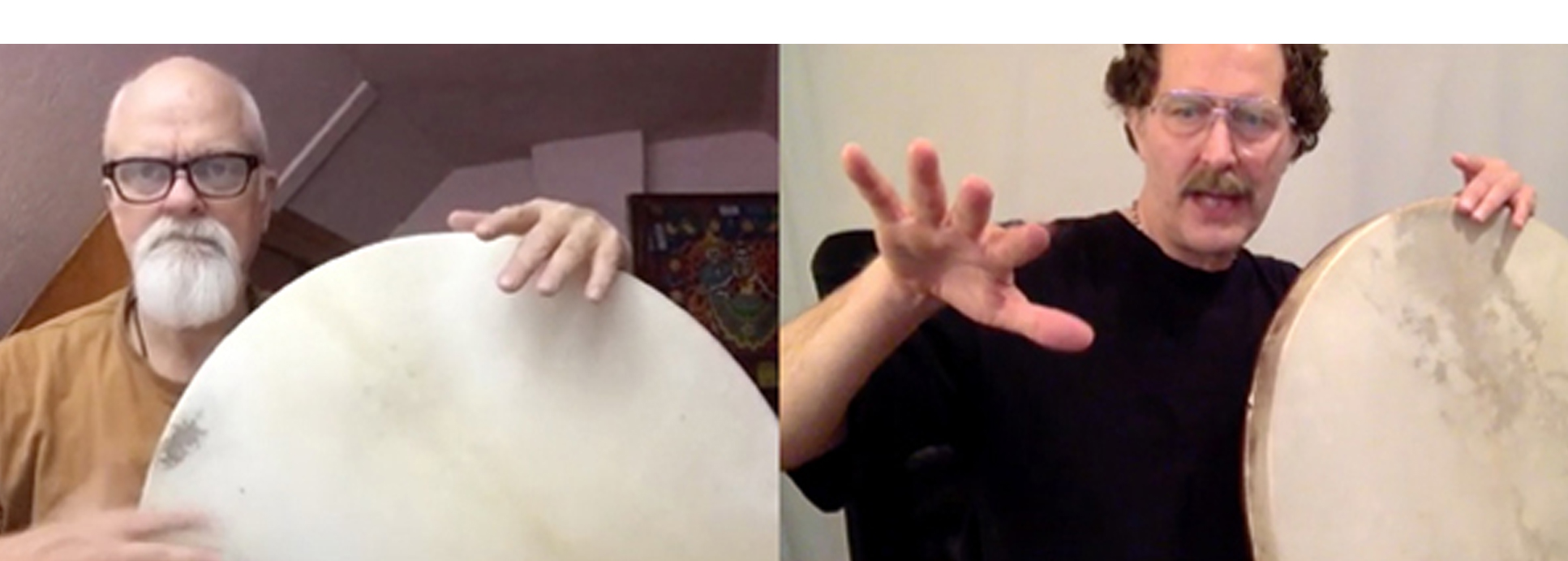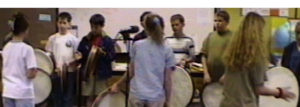

ONLINE MUSIC LESSONS WITH MUSICIAN GEORGE GRANT
George Grant has taught his unique DRUM TALK ®™ method to thousands of public school students, university students, music therapists, and music teachers. Involved in Artist-In-Residence and university programs since 1991 George has a diverse background in music education, music therapy, live and recorded performance.
Invitation to chat with George — without obligation.
You may have questions so let’s visit, I can learn more about you, answer any questions, and tailor lessons to fit you. Call me at (208) 720-2933 or email me here. If you email please be sure to include your name and phone number.
From the convenience of your home or office computer or tablet
ONLINE LESSONS SCHEDULED AND TAILORED TO YOUR NEEDS AND SKILL LEVEL
Many Options – Drum, Voice, or Both
The voice and the drum are like a hand and a glove. Light intuitive drumming naturally supports vocal toning, without the need to learn complex traditional rhythms or meters. For those who want more, deeper rhythm training is fun with Play Along recordings.
Universal Frame Drumming Technique
Frame drums are often preferred to compliment vocal toning, due to their light sound, variety of tones, and portability. But George’s “universal hand drum techniques” easily transfer to any and all other hand drums.
“If you say it you can play it.”
George Grant – “DrumTalk”
For thousands of years, many cultures have used wordless vocable syllables to “talk like a drum.” It is easier to first chant a rhythm with the voice, and then imitate that pattern on a drum. Beyond drumming, Drum Talk opens up the voice, which opens up creativity, confidence, and therefore — healing energy.
Syncopation and Rhythm Mastery
George Grant’s DRUM TALK starts very simple and can stay simple. But for those who want more, DRUM TALK can lead to expanded rhythm mastery. George’s method works for any and all singers, drummers, and instrumentalists who want to improve rhythm mastery, song writing, improvisation (essential for song writing), accompaniment, and ensemble performance.
As a roving Artist-In-Residence throughout Utah and Idaho since 1991, George has taught his unique DRUM TALK method to many thousands of students in public schools and universities. Drum Talk is based on the ancient maxim “If you can say it, you can play it.”
A fifth grade teacher reports: “The level of concentration and on-task behavior George gets from his students is astounding. Participating in this class is like going on a roller-coaster ride; once you’ve started, there’s no stopping until it’s over.”
“Drum Talk is not about drumming.” George reminds new students.
George’s contemporary system shows students how to quickly assemble various syllables into patterns, and if they like, how to write them down in shorthand. After speaking or chanting the pattern, it is much easier to play that same pattern on a drum, guitar, flute, or any other instrument. George says: “First, we learn how to talk. Then, only after many years of conversation with family and friends, we slowly learn A-B-Cs, then words and sentences. The natural language of music is the same way; first we feel it. If you can feel the music, it is much easier to read and write it.” Drum Talk shorthand abbreviations naturally convert to traditional notation, making a typically tough skill much more easy and fun.
Online Vocal Toning and Drum Talk Courses for CBMT Professional Continuing Education Classes
Maureen Hearns, Professor of Music Therapy at Utah State University, worked with George to write “Empowerment Through Improvisation; An Instructional Guide to George Grant’s DRUM TALK.”
George Grant’s DRUM TALK is used by many professional music therapists around the USA. After a bit of orientation, it is easy for both the professional and the client at any skill level.
This Drum Talk curriculum has been taught at Utah State University for over two decades. The comprehensive manual includes a 220 page e-Book manual and 92 mp3 audio files.
This manual allows for the ease of “Individualized Self-Study” option for CBMT credits.
Step 1:
Download the Recertification Manual with this link:
CBMT_Recertification_Manual_Fifth_Edition_2011.pdf
Step 2:
On page 16, review procedures for “Individualized Self-Study”.
A Board Certified Music Therapist may earn up to 60 CMTE credits per cycle for engaging in Individualized Self-Study Courses, with no more than 20 CMTE credits accrued in a single content area of the CBMT Scope of Practice.
Documentation required, if audited.
Individualized Self-Study consists of an individualized course of study appropriate to specific educational goals of the certificant and that relate to the CBMT Scope of Practice. Individualized Self-Study is conducted under the supervision of a qualified mentor selected by the certificant.
Step 3:
Contact George and we can custom design some lessons and projects — general or specific; basic or advanced — based on your needs and desires.



